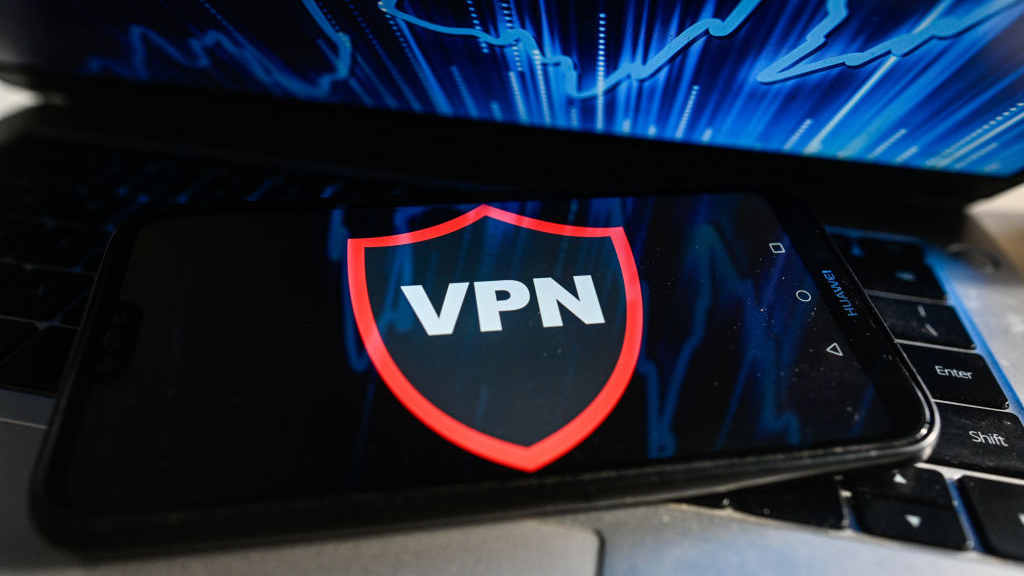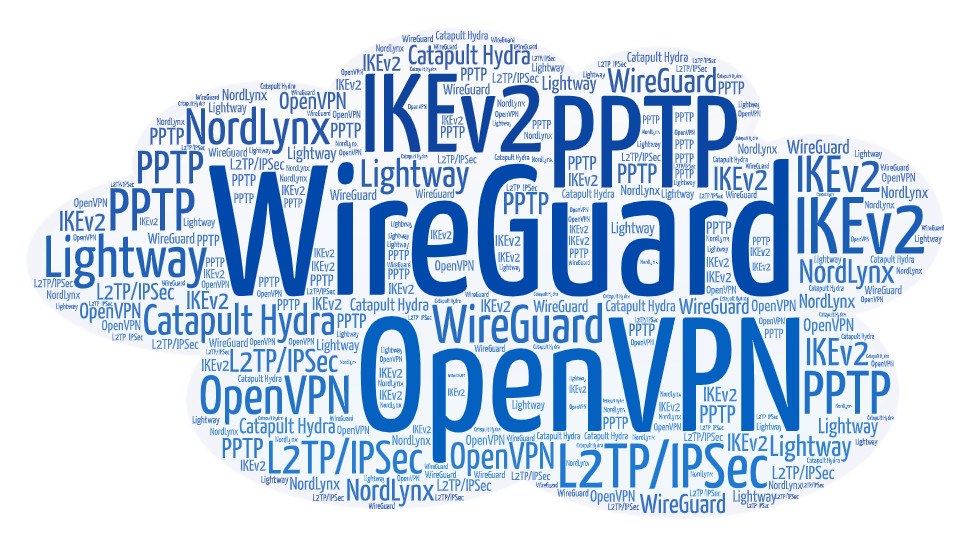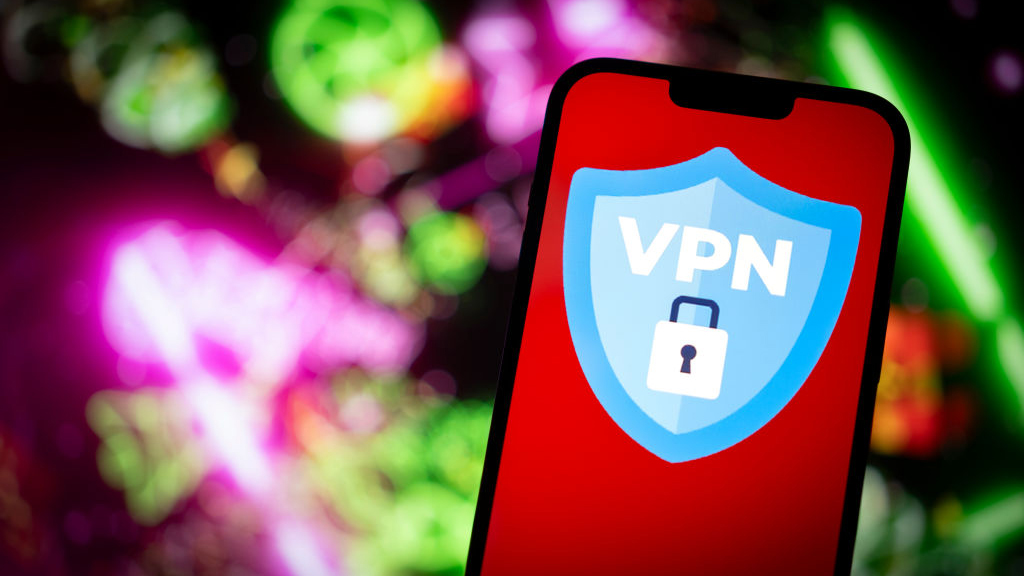The 3 biggest VPN innovations of 2024 – what does the future hold?
The biggest VPN breakthroughs of the last twelve months

As we approach the end of another year, it's a time to reflect on how technology has evolved and shaped our lives. The VPN world is no exception, with innovations that not only redefine the landscape but also make it safer for us to navigate the digital age.
With cyber threats becoming more sophisticated, today's best VPN providers have had to push the boundaries of what's possible to keep us safe. In 2024, we've seen some groundbreaking advancements that have improved the security, accessibility, and overall effectiveness of VPN services.
I've highlighted three of the most impressive VPN innovations of 2024, which not only set new standards but also show us where the future of online privacy and security is headed.
Post-quantum encryption: preparing for the next era of security
The arrival of quantum computing has long been anticipated as a game-changer for many industries, including cybersecurity. As quantum computers advance, they could potentially render traditional encryption algorithms obsolete. This would be a major concern for anyone relying on VPNs to protect their data.
Current VPN protocols often rely on RSA-based key exchanges, which are highly effective today. However, the way quantum computers function could easily break through these encryption methods, exposing sensitive data to hackers. This is why the VPN must innovate in anticipation of quantum threats.

Want to learn more about VPN security and the various protocols on offer? Head on over to our in-depth VPN protocol explainer.
In August 2024, the National Institute of Standards and Technology (NIST) released three quantum-resistant encryption standards, setting a new benchmark for secure communications in a quantum computing era.
VPNs like Surfshark, NordVPN, ExpressVPN, and Mullvad VPN are already ahead of the curve, having integrated these quantum-resistant encryption standards into their protocols.
This ensures that even if quantum computing becomes a reality, the security of VPNs will remain intact. With these new standards in place, VPN users can continue to rely on their services without fear of their data being exposed to the next generation of computing systems.
ARM compatibility: ensuring smooth performance for next-gen devices
With the rise of ARM-based devices, such as the latest Windows PCs powered by ARM architecture, there has been an increasing demand for VPNs to ensure their services are compatible with these devices.
ARM processors, like those used in Microsoft's Surface Pro X and many modern laptops powered by Qualcomm's Snapdragon, offer energy efficiency and performance advantages over traditional x86 processors.
Until recently, many VPNs were not fully optimized for ARM devices, leading to performance issues or even a lack of support altogether. However, in 2024, we saw an impressive push from VPN providers to ensure their apps are ARM-compatible.
NordVPN, Surfshark, and Windscribe have already rolled out ARM-friendly apps
NordVPN, Surfshark, and Windscribe have already rolled out ARM-friendly versions of their apps, ensuring smooth and efficient performance for users on these devices.
To avoid being left behind, ExpressVPN has taken an innovative approach by using a solution that avoids the need to build a new app from scratch.
Instead, the company has modified its existing application to work seamlessly with ARM devices, ensuring that its users don't experience any performance degradation.
As more ARM-powered devices hit the market, we can expect this trend to continue, with VPN providers offering full ARM support to maximize the potential of next-gen hardware.
Mixnet technology: taking anonymity to the next level
In an era of growing digital surveillance, maintaining online anonymity has become more difficult. The increasing sophistication of AI-powered data analytics means that our online activities are more easily tracked than ever before.
To combat this, the concept of a mixnet network is gaining traction, offering a new approach to protecting user privacy by obscuring data traffic.

Not all VPNs are made equal – some prioritize your privacy more than others. Head on over to our secure VPN rankings for the details.
A mixnet works by shuffling data packets as they enter a server, sending them through several intermediary servers before reaching their destination. Along the way, network noise is added to further obscure the origin of the data, making it exponentially harder for trackers to identify the user.
While this concept has been around for a while, Nym Technologies is leading the charge in making mixnets a practical solution for everyday users. Their NymVPN is currently in beta and available for free, leveraging this technology to provide a much more secure and anonymous browsing experience.
At the time of writing, NymVPN has more than 700 mixnet servers around the world, making it one of the most scalable real-world applications of the technology.
This innovative approach to privacy is similar to TOR, but with enhancements that could make it a more viable solution for mainstream internet users. By decentralizing data traffic and adding layers of obfuscation, NymVPN ensures that even sophisticated tracking efforts will have difficulty identifying or following users.
As surveillance technologies improve, mixnets like NymVPN may become the gold standard for privacy-focused internet users.
The bottom line
As cyber threats evolve, it's reassuring to know that the VPN world is not standing still. Whether you're looking for the latest in encryption technology, a smoother experience on your new ARM-based laptop, or the most robust privacy protection available, 2024 has been a year of transformative changes that will ensure the safety and privacy of internet users for years to come.